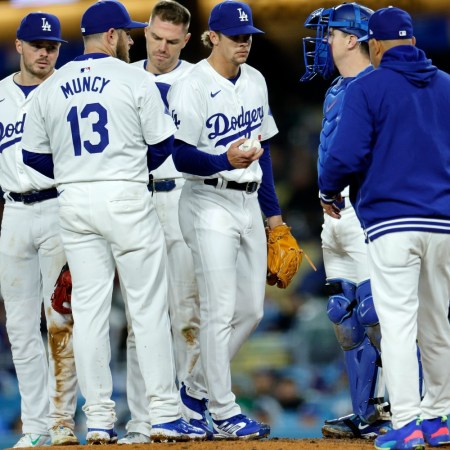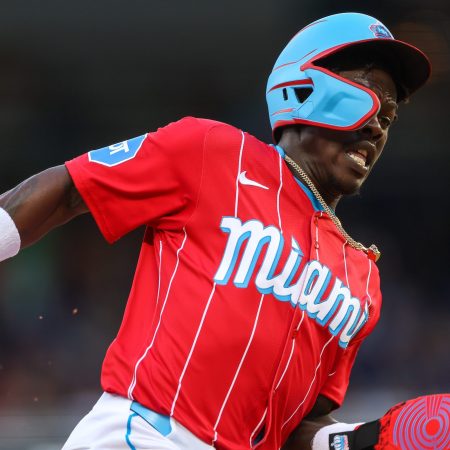Last week in the sixth inning of Game 6 of the World Series, Tampa Bay Rays ace Blake Snell surrendered his second hit of the night, a single, to Austin Barnes of the Los Angeles Dodgers.
With his team leading 1-0 and the top of the Dodgers order coming up, Tampa Bay manager Kevin Cash pulled Snell with one on and one out — even though the 27-year-old former Cy Young winner had already stuck out each of LA’s No. 1, 2 and 3 hitters (Mookie Betts, Corey Seager, and Justin Turner) … twice.
After an angry Snell departed his two-hit shutout after recording nine strikeouts and zero walks on just 73 pitches, his replacement, Nick Anderson, promptly gave up a double to Betts that led to a wild pitch, a fielder’s choice, and a 2-1 Dodgers lead. L.A. never surrendered it, going on to win 3-1 and take the World Series.
“I’m not exactly sure why. I’m not going to ask any questions, but he was pitching a great game,” Betts said of the decision to pull Snell. “It was kind of like a sigh of relief. Had he stayed in the game, he might have pitched a complete game. It was the Cy Young Snell that pitched tonight.”
Cash was lambasted after the game for bowing down to the analytics and removing Snell before he could face any batter for the third time, rather than using his eyes and realizing his pitcher was dealing. Clearly if you want to blame him or the Tampa Bay analytics department, you can.
Or, if you want to play it back a bit further, you can blame the Houston Astros, the team that helped catalyze the age of modern analytics after using them to go from the worst team in baseball in 2014 to World Series winners in 2017 (stealing signs helped as well, of course).
“By all accounts, including my own, they were the most analytically driven baseball team in the league in all ways across the organization for most of the past decade,” says Ben Reiter, the author of Astroball: The New Way to Win It All and host of The Edge, a new Cadence13 podcast about Houston’s sign-stealing scandal. “What’s interesting now is they’re not such outliers. There used to be teams that were laggards that were still holding on to the traditional ways. There aren’t any anymore. In certain ways, every team in baseball is now becoming the Astros.”
While the Astros were not the first team to adopt analytics — think Moneyball with Billy Beane and the Oakland A’s — no team committed itself to the revolution as deeply as the Astros. It all starting around 2012, when Jeff Luhnow was in his first year as general manager in Houston, according to Reiter.
“Luhnow is widely considered to be one of the most successful baseball executives of his generation and is credited with ushering in the second analytics revolution in baseball,” he says. “In that second revolution, it’s not just looking for on-base percentage over batting average anymore. It is applying analytics to every single thing. I would say every team in baseball now has a lot of Astros in them, whether it’s actual ex-Astros people or Astros strategies.”
Reiter, who delves deep into Houston’s historic cheating scandal in his six-part podcast and also examines how it intertwined with the team’s organizational philosophy, stops well short of blaming the Astros and analytics for what happened with Cash and Snell, but does acknowledge the reliance on stats and data may be somewhat of an issue for baseball moving forward.
“Analytics is an undeniably powerful tool to help teams make decisions about which players to acquire and which strategies to use on the field,” he says. “The question we’re facing now is: Is it being used at times as more than a tool? Is it being used as the decision-maker itself, as opposed to an aid to the decision-makers? As we go forward, maybe people will start to understand the analytical approach in more depth and nuance, but it’s simply impossible to imagine a time in which baseball or any industry that’s embraced this goes back to the way it used to be.”
Whether you’re looking to get into shape, or just get out of a funk, The Charge has got you covered. Sign up for our new wellness newsletter today.


















